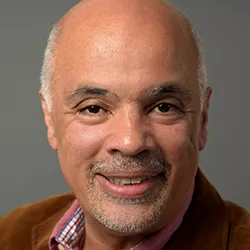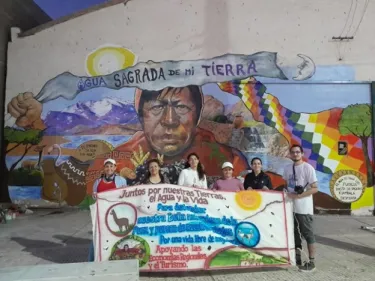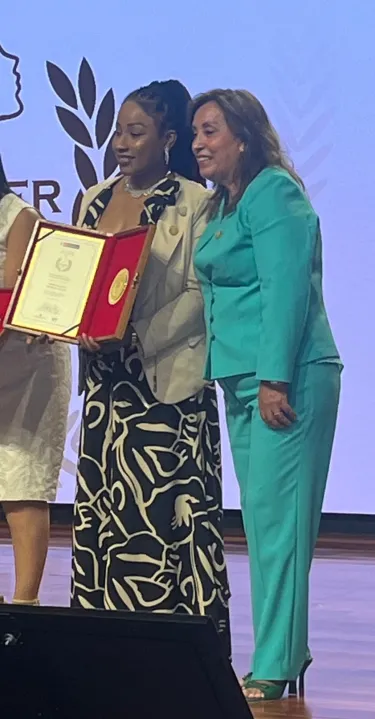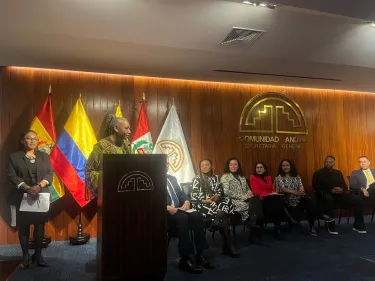The subhead for the Synod of the Northeast’s “Connection to Transformation” conference was “Creating a Partnership Culture in Faith Communities.” That’s exactly what happened throughout the two-day conference, held at First Presbyterian Church in Jamaica, which began its ministry in Queens, New York, in 1662, and is the oldest continuously serving Presbyterian church in the nation.
 |
| The Rev. Dr. SanDawna Gaulman Ashley |
The first speaker on the first day was the Rev. Dr. Samuel Cruz, Associate Professor of Religion and Society and director of the DMin program at Union Theological Seminary in New York. He also serves as senior pastor of Trinity Lutheran Church in Brooklyn. “I’m on sabbatical, but I felt called to answer SanDawna’s email,” he said. “I’ve decided that in the conditions we’re living under, we need to use our bodies and ourselves as public ministry.”
“We’re all doing public ministry and theology,” he said, “whether we acknowledge it or not.”
While attending middle school, Cruz used to walk right by the church he’s currently serving to get home every afternoon. “It’s an imposing building. The churches on Fourth Avenue make public statements in the community,” he said. “I don’t remember [noticing] the church. The church is looked at a little differently now. Now the building is used — a lot, because the community doesn’t have a lot of spaces.”
He contrasted his memory with churches in small communities in Latin America and the Caribbean, where a midtown plaza often contains the church and the mayor’s office. “That’s the public ministry being espoused without saying anything,” Cruz said. “Government and the church have always worked together, but on the side.”
 |
| The Rev. Dr. Samuel Cruz |
To dig into in public ministry, we must engage in what theologian Gustavo Gutiérrez said is “critical reflection on praxis.” But often what we end up with, Cruz said, is “a theology that offers forgiveness and redemption to the powerful.”
During a question-and-answer session that followed his talk, Cruz was asked how to be dedicated to public ministry without getting burned out. “Being engaged with activists, I see the burnout because people don’t know how to have fun,” he said.
And don’t hesitate to fight for what people need.
“Why should we be shy about people wanting to have a home or health care? Just say what the gospel is,” he recommended. “Public ministry is the gospel.”
We do public ministry “because it’s the moral thing to do,” he said. A member of the host church told Cruz, “We don’t stay in the pews. We are the church out there.”
The “apparatus of oppression is so sophisticated,” Cruz lamented. “We say, ‘We are standing on Lenape land.’ Do something real” to repair harm, he said, “not symbolic.”
He was asked: What are the best ways to include youth in our churches?
“It’s always been a challenge for the church,” Cruz said. “There’s been growth in my church,” because “they’re looking for spirituality and commitment. When I forget to pray for the Palestinians, they text me and I hear it — during worship!”
“Prayers are public statements that people are making, he said. The youth “constantly remind us that homelessness is a problem. Young people need to feel like we’re addressing real problems.”
Mike Ferguson, Editor, Presbyterian News Service (Click here to read original PNS Story)
Let us join in prayer for:
- Michelle Muniz, Mission Associate, Presbyterian Disaster Assistance, Interim Unified Agency
- Margaret Mwale, Associate, Self-Development of People, Interim Unified Agency
Let us pray:
Creator God, thank you for loving and caring Christian disciples who help us to know and love you. Show us how to teach and nurture others through the grace of Christ, our Lord. Amen.



































